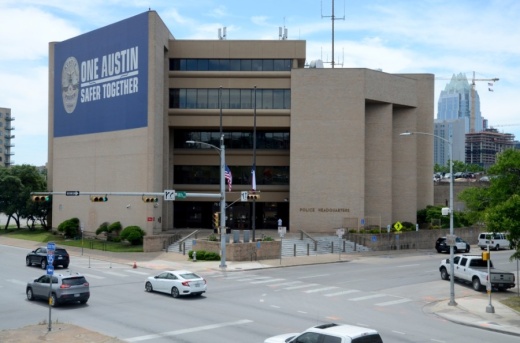The decoupling measure, included in a multipart amendment to the city budget, was headlined by the creation of an emergency communications department to be staffed by 222 full-time employees moved out of APD. The new department's responsibilities include receiving all emergency 911 calls and dispatching the relevant public safety response, taking nonemergency 311 calls related to the APD, interacting with other state and federal law enforcement agencies and training department personnel.
Several dozen jobs previously tied to the police department, ranging from alarms administration and public information to human resources and finance, will also be moved into existing city offices relevant to their respective functions.
The public safety item passed through council in a 9-1 vote, with Council Member Mackenzie Kelly voting against and Council Member Vanessa Fuentes absent for the vote.
Despite the physical and administrative shift of employees and duties from under APD's umbrella and the millions of dollars in budget transfers required to facilitate the actions, council members and city staff said the move will have no net effect on city or police budgets this year.
“This is us as a board asking whether we are organizing our resources in the best possible way. We are essentially centralizing those functions for support services as is done for a lot of other departments, but we have to have an accounting mechanism to do that," Council Member Alison Alter said.
Officials also said the reorganization will not affect emergency response in the city during or after the transition.
"In none of these cases are we spending any less money on public safety and these functions. We are moving where they are accounted for and the reporting structures for that," Alter said. "You still will call 911; all the people in 911 are still hired in 911; they will be moving over into this emergency communications department."
In a statement, City Manager Spencer Cronk noted that emergency communications would see no immediate changes and that the transition to the new department may take up to one year.
The ordinance containing the public safety operational and budget updates passed council April 22 with a two-part amendment proposed by Council Member Ann Kitchen. Kitchen's first change clarified the alternative mental health crisis response options available for dispatchers at the communications department, and the second expanded the department's specified budgetary scope to include public safety as well as criminal justice purposes. The amendment was unanimously accepted by council and with approval from interim Police Chief Joseph Chacon.
“It would enhance what we are trying to do at communications and how that effort would continue under kind of a different umbrella and different leadership, but nonetheless would continue to support the citizens of Austin and our officers," Chacon said. "It sounds like it is something that would be worthwhile."
Public safety reforms continue
The decoupling of some jobs and services from the purview of the APD is the latest step council has taken in its Reimagining Public Safety initiative embarked upon last spring and formalized through the city's summer 2021 budget planning process.
The vote also took place on the heels of an expansive April 20 presentation to council from targeted citizen working groups of the Austin Reimagining Public Safety Task Force. Those proposals were the result of a monthslong community engagement process that forwarded recommendations on reforming an array of policing and public health and safety practices in Austin to city staff and council members.
Prior to the final vote on the April 22 agenda item, Kitchen highlighted the potential for several recommendations from the task force to be implemented within the new emergency communications department. Kitchen said those items could include the diversion of most 911 calls away from police and toward other first responders, implementing a non-police crisis line, adding emergency response options to serve more cultures and languages, and enhancing community evaluation of emergency responses in the city.
“If we’re creating this new emergency communications department, it’s timely and appropriate to consider the recommendations from the task force ... as they relate to the 911 and emergency response systems," Kitchen said. "It just makes sense as we’re standing up this new department."
City management staff said they have already begun sifting through the task force working group recommendations and will continue to bring those public safety reform items before council for possible consideration and implementation.
"As some are quicker to come to and analyze, and as we get those moving forward, we will certainly bring those to the manager and to council. Those that will take additional time, we will let you know as well. So we will be as transparent as we can be throughout this process," Deputy City Manager Nuria Rivera-Vandermyde said.





